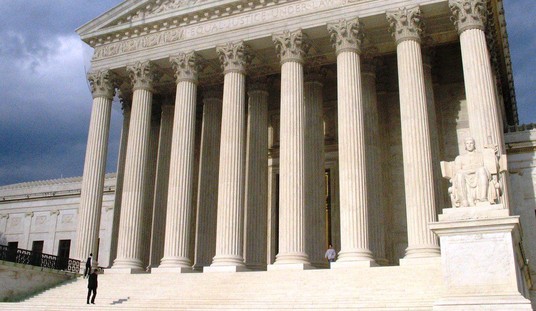The process of carrying a firearm in self-defense is very different in Missouri than New York, and the editors of the St. Louis Post-Dispatch would like to keep it that way. Actually, I’m convinced that the paper’s editors would prefer to see New York’s subjective “may issue” carry laws replace the permitless carry laws in Missouri that recognize the right of legal gun owners to lawfully carry without the need for a government permission slip, but that’s not what they’re arguing for in their latest editorial.
Instead, the Post-Dispatch editorial team is stumping for the Supreme Court to uphold New York’s carry laws, claiming that overturning them would be an example of judicial activism.
Contrary to the carefully crafted mythology of the gun lobby, an unfettered right to firearms has never been the norm in America’s history; gun laws of the past were routinely more stringent than they are in much of the nation today. It was only in 2008 that the Supreme Court (in District of Columbia v. Heller) first interpreted the Second Amendment’s much-debated language — that a “well regulated Militia” could “keep and bear Arms” — to mean individuals also had that right, at least in the home.
Right off the bat the paper gets it wrong. The Heller decision may have been the first time that the Court explicitly said that, yes, the right to keep and bear arms is a right of individual citizens, but then-Justice Antonin Scalia, who wrote the majority opinion, took pains to note that the opinion didn’t overturn any previous decisions. And a true reading of this nation’s history makes it crystal clear that the right was seen as a fundamentally important one when the Bill of Rights was crafted in 1787, when the 14th Amendment was debated in the 1860s, and on through today, when activists continue to fight to have that right recognized in all 50 states.
The century-old New York law before the court last week requires a permit to carry a concealed handgun in public, with the applicant required to show “proper cause” for needing one and subject to restrictions on where it can be carried. Should the court strike down the law, it could effectively prevent states from setting their own rules for carrying guns in their own jurisdictions.
That’s not quite true either. Even if the Supreme Court strikes down the process for obtaining a permit to carry in New York, the state and city will still be able to craft time, manner, and place restrictions that may or may not pass constitutional muster. What the state (and New York City) will hopefully no longer be able to do is to declare that carrying a firearm in self-defense is off-limits to everyone unless you can demonstrate some sort of special need to do so.
Beyond the practical dangers of such an outcome is what should be a philosophical conundrum for Republicans who have long warned against legislating from the bench. An amicus brief filed in the New York case from a group of prominent conservatives argues that both history and the Constitution mandate leaving this question to the states.
As one of those conservatives, retired appeals court Judge J. Michael Luttig, put it in a New York Times op-ed last week: “Conservatives, textualists and originalists believe — or should — that the Second Amendment ought not be interpreted to take from the people and their legislatures the historical and traditional authority they have had for centuries to decide where guns may be carried in public.”
Among the questions the court’s self-proclaimed conservative-originalists should be asking themselves is whether the Framers intended to remove states’ ability to set their own laws on an issue that directly affects the lives and safety of their citizens. That doesn’t sound very conservative.
This argument might carry more weight if it didn’t ignore American history. At the time the Bill of Rights was ratified, every one of the amendments applied only to the federal government and Congress. States had much more power than the federal government over the daily lives of their citizens for the first 90-some odd years of this country’s existence, but the Fourteenth Amendment changed all that. As the amendment states:
All persons born or naturalized in the United States, and subject to the jurisdiction thereof, are citizens of the United States and of the State wherein they reside. No State shall make or enforce any law which shall abridge the privileges or immunities of citizens of the United States; nor shall any State deprive any person of life, liberty, or property, without due process of law; nor deny to any person within its jurisdiction the equal protection of the laws.
The Fourteenth Amendment changed the relationship between the federal government and the states. Now the federal government had a role to play in ensuring that individual rights weren’t violated by any level of government, though the Supreme Court chose to selective incorporate those rights against state and local intrusion on a piecemeal basis over the ensuing decades. It wasn’t until the 1920s that the Court incorporated the First Amendment, with the Second Amendment’s incorporation coming in 2010’s McDonald v. Chicago, which struck down the city’s ban on handguns.
So, even if every one of the Framers was fine with states banning citizens from bearing arms (note: they were not), we’re not just talking about what the founding generation thought. In examining the history, text, and tradition of the right to keep and bear arms, it becomes abundantly clear that the federal judiciary is vested with the Constitutional authority to declare that a state or city’s gun control law violates the rights of American citizens. Frankly, the editors of the St. Louis Post-Dispatch should be thrilled that’s the case. In a ruby-red state like Missouri I’m sure there are some conservatives who would love to pass state laws dictating the freedom of speech and of the press enjoyed by the liberal media. But just as the Fourteenth Amendment protects our right to keep and bear arms against state and local infringement, it protects anti-gun editors from the same.
The biggest problem I see with the paper’s editorial is that the writers don’t view the right to keep and bear arms as a real right. Instead, they seem to think it was invented out of thin air by the Supreme Court and the gun lobby back in 2008. Personally, I think it would be a good idea for these editors to do a little less writing and a lot more reading on the topic before they weigh in again, because this editorial is just embarrassingly off-base.









Join the conversation as a VIP Member